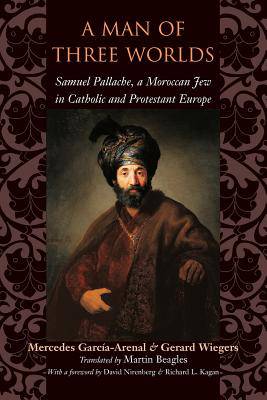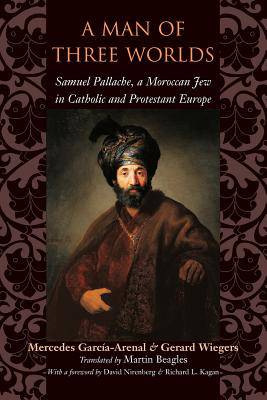
- Retrait gratuit dans votre magasin Club
- 7.000.000 titres dans notre catalogue
- Payer en toute sécurité
- Toujours un magasin près de chez vous
- Retrait gratuit dans votre magasin Club
- 7.000.0000 titres dans notre catalogue
- Payer en toute sécurité
- Toujours un magasin près de chez vous
A Man of Three Worlds
Samuel Pallache, a Moroccan Jew in Catholic and Protestant Europe
Mercedes Garcia-Arenal, Gerard Wiegers
Livre broché | Anglais
51,95 €
+ 103 points
Description
In the late fifteenth century, many of the Jews expelled from Spain made their way to Morocco and established a dynamic community in Fez. A number of Jewish families became prominent in commerce and public life there. Among the Jews of Fez of Hispanic origin was Samuel Pallache, who served the Moroccan sultan as a commercial and diplomatic agent in Holland until Pallache's death in 1616. Before that, he had tried to return with his family to Spain, and to this end he tried to convert to Catholicism and worked as an informer, intermediary, and spy in Moroccan affairs for the Spanish court. Later he became a privateer against Spanish ships and was tried in London for that reason. His religious identity proved to be as mutable as his political allegiances: when in Amsterdam, he was devoutly Jewish; when in Spain, a loyal converso (a baptized Jew). In A Man of Three Worlds, Mercedes García-Arenal and Gerard Wiegers view Samuel Pallache's world as a microcosm of early modern society, one far more interconnected, cosmopolitan, and fluid than is often portrayed. Pallache's missions and misadventures took him from Islamic Fez and Catholic Spain to Protestant England and Holland. Through these travels, the authors explore the workings of the Moroccan sultanate and the Spanish court, the Jewish communities of Fez and Amsterdam, and details of the Atlantic-Mediterranean trade. At once a sweeping view of two continents, three faiths, and five nation-states and an intimate story of one man's remarkable life, A Man of Three Worlds is history at its most compelling.
Spécifications
Parties prenantes
- Auteur(s) :
- Traducteur(s):
- Editeur:
Contenu
- Nombre de pages :
- 200
- Langue:
- Anglais
Caractéristiques
- EAN:
- 9780801886232
- Date de parution :
- 01-04-07
- Format:
- Livre broché
- Format numérique:
- Trade paperback (VS)
- Dimensions :
- 148 mm x 221 mm
- Poids :
- 263 g

Les avis
Nous publions uniquement les avis qui respectent les conditions requises. Consultez nos conditions pour les avis.






